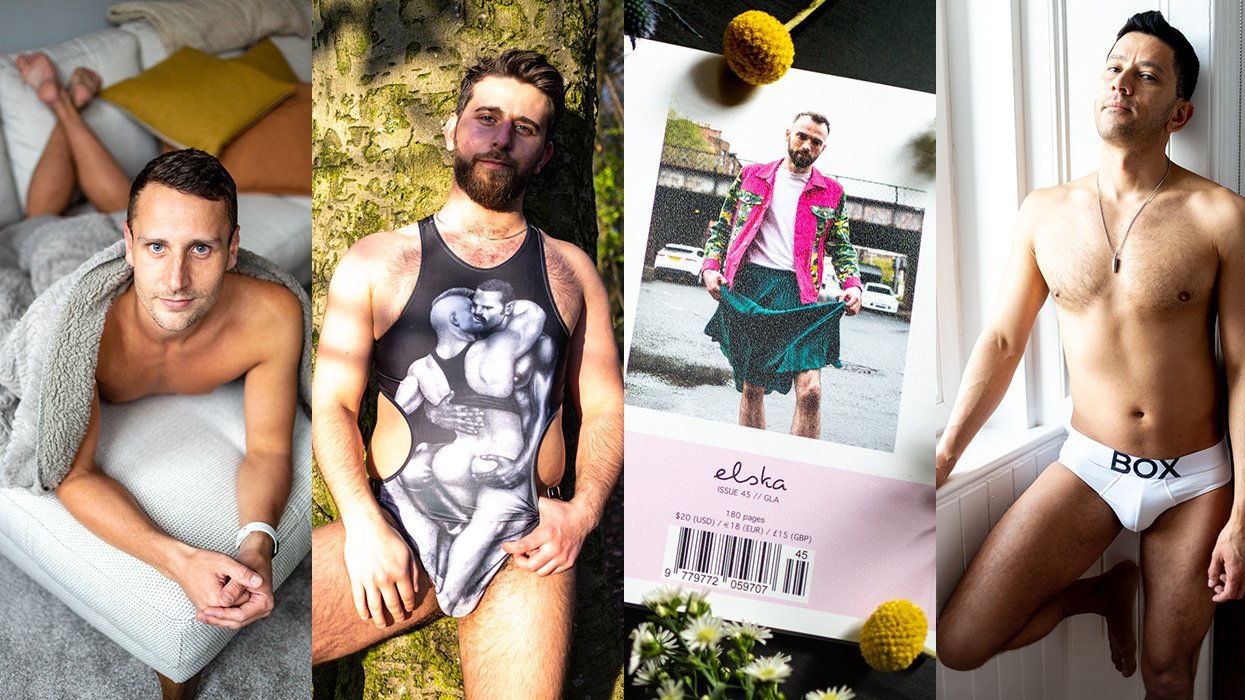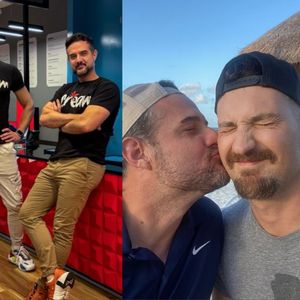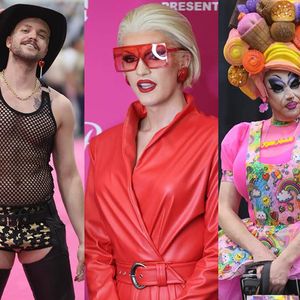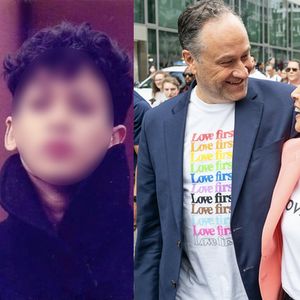On Sunday, October 7, Cameron Gray expected to deplane his flight from Sydney, Australia, to meet his partner of two years, Mark Smalley, at the arrivals gate of Los Angeles International Airport's Bradley International Terminal. Instead, Gray was met by a uniformed officer, who wouldn't let him through Customs.
The immigration officer informed Gray that he was being denied admission to the country because he had too many recent entries on his passport, which listed his official residence in Australia. And with that, the officer sent Gray back into the bowels of LAX, where Gray boarded a flight returning to Australia.
It's now been more than 100 days since Gray and Smalley have seen each other in person. They'll be reunited Christmas Day, when Smalley lands in Sydney at 6 a.m., but even that happy reunion will be tainted with the knowledge that the couple's geographic separation is once again imminent, when Smalley heads back to his home in West Hollywood January 7.
Since Smalley is an American citizen and Gray is an Australian citizen, the two men traverse the globe trying to make their federally mandated long-distance relationship work. Because Smalley's partner is of the same sex, he cannot sponsor Gray for permanent residency or citizenship. As far as the federal government and immigration departments are concerned, the couple, who entered into a civil union in November 2011, are strangers.
"Until we have a secure visa or until we have gay marriage or there's options for us, there's always that uncertainty," Gray says on the phone from Sydney. "But other than that, it's definitely worth it to be in love, and I wouldn't change a thing. If I had my chance again, I would still ask him on a date, and we would still be where we are today."
Gray and Smalley are just one of the thousands of binational LGBT couples who are forced to live apart from each other thanks to the federal Defense of Marriage Act. The legislation, signed into law in 1996 by President Clinton, restricts the federal government from recognizing any relationship aside from that of one man and one woman as a marriage for purposes of benefits, taxation, and immigration.
Gay and lesbian Americans are unable to sponsor their same-sex spouse for a green card thanks to DOMA, even though straight couples can receive an unlimited-entry visa for a fiance, says Lavi Soloway, a California-based attorney who's been handling LGBT immigration cases for 20 years. Soloway cofounded the DOMA Project in 2010 to end separations, deportations, and exile of binational lesbian and gay couples caused by DOMA. He also founded Immigration Equality in 1993.
Soloway says that in cases like Smalley and Gray's, the only roadblock keeping the happy couple apart is DOMA. And if Smalley and Gray were an opposite-sex couple, U.S. immigration law would provide a litany of options for sponsored citizenship, says Soloway.
"Spouses of U.S. citizens are given access to a limitless number of visas," explains Soloway. "And even fiances are included in this process -- [they are] provided for so that they can get married and be here and create a family together. And yet, despite all of those provisions, none of them are available to same-sex couples. And that's only because of DOMA."
Soloway also highlights the unique injustice that DOMA forces gay and lesbian Americans into exile in order to live with the person they love. Soloway is clear that he and the DOMA Project view these couples as involuntarily exiled. He estimates that there are 40,000 binational couples in the U.S. threatened with separation because of DOMA, but there are thousands of others separated or in exile.
"The folks who are in the United States are visible," says Soloway. "They can be active, they can fight. The folks who are separated or who live in exile are the least visible. They're really the invisible consequence of DOMA on our community. We actually have a disappearing population of lesbian and gay people, because of DOMA. And we've had that phenomenon for years."
 Smalley might be among the next wave of Americans to abandon their homeland in the name of love. Smalley says he is absolutely considering moving to Australia to be with Gray if American courts and the Obama administration don't act on repealing DOMA within the next six months. If Smalley were to emigrate to Australia, Gray says he would easily be able to sponsor his partner for work, residency, and citizenship.
Smalley might be among the next wave of Americans to abandon their homeland in the name of love. Smalley says he is absolutely considering moving to Australia to be with Gray if American courts and the Obama administration don't act on repealing DOMA within the next six months. If Smalley were to emigrate to Australia, Gray says he would easily be able to sponsor his partner for work, residency, and citizenship.
"Mark could actually move here pretty quickly, and we would need to prove that we've been together for a period of two years or longer," explains Gray. "He can potentially come over here and start working tomorrow and get a temporary visa ... that will actually allow him to work. So the process is much quicker and in our favor within a timeline."
While the couple openly wishes for immigration practices as inclusive as Australia's, they recognize that the United States is making progress.
In 2011 the Obama administration announced it would no longer defend DOMA in court, citing the president's belief that the law is unconstitutional. And on October 5, the Obama administration issued a directive that ordered prosecutorial discretion in deportation proceedings involving committed same-sex binational couples, while the government figures out what to do about DOMA and the binational couples it forces apart.
But because Gray wasn't allowed to enter the country October 12, he wasn't technically deported, so the prosecutorial discretion doesn't apply in his case.
Smalley and Gray have gone to great lengths to stay within the law of the land, navigating 90-day visas that allow the couple to be together for three months before Gray is forced to return to Australia. It's an expensive, time-consuming, and frustrating process, they say.
Gray first arrived in the United States on a work visa in 2003. But when the economy crashed, Gray was among the workers let go from his longtime employer, Herbalife, in 2011. After unsuccessfully looking for a job for a year, Gray grudgingly returned to his native country, without Smalley at his side.
"I could have just stayed there and be illegal, but that's not what we've done," says Gray. "We've tried to stay within the law, every week. So when marriage is allowed and all these other roadblocks we've had in front of us are overturned, then we can get married happily and not have to worry about other steps."
Gray and Smalley are encouraged by President Obama's reelection, an optimism that advanced when the Supreme Court announced in December that it will hear two cases relating to same-sex marriage. One is a challenge to California's Proposition 8, which revoked the freedom to marry by popular vote. The other is a challenge to DOMA, turning on the case of Edith Windsor, an 83-year-old lesbian widow who was forced to pay $360,000 in estate taxes because the federal government did not recognize her marriage to her late spouse, Thea Spyer.
Smalley said he and Gray are "hesitantly optimistic" and looking forward to the Supreme Court's ruling, expected in June.
"We will be counting down the days until then, and hope and pray that they will be on the right side of history," says Smalley. "The world is looking to the United States to take the lead on equality. I hope we do not disappoint."
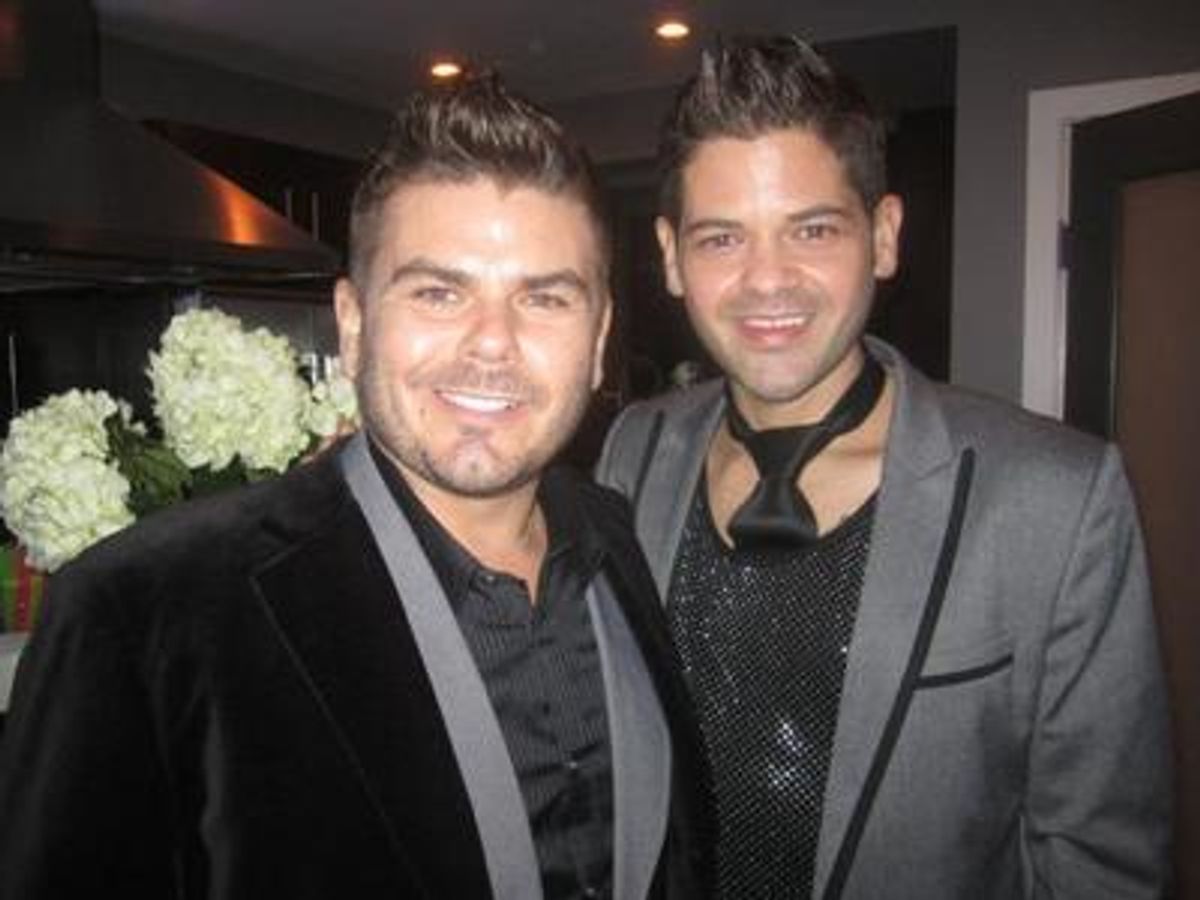

 Smalley might be among the next wave of Americans to abandon their homeland in the name of love. Smalley says he is absolutely considering moving to Australia to be with Gray if American courts and the Obama administration don't act on repealing DOMA within the next six months. If Smalley were to emigrate to Australia, Gray says he would easily be able to sponsor his partner for work, residency, and citizenship.
Smalley might be among the next wave of Americans to abandon their homeland in the name of love. Smalley says he is absolutely considering moving to Australia to be with Gray if American courts and the Obama administration don't act on repealing DOMA within the next six months. If Smalley were to emigrate to Australia, Gray says he would easily be able to sponsor his partner for work, residency, and citizenship. 








